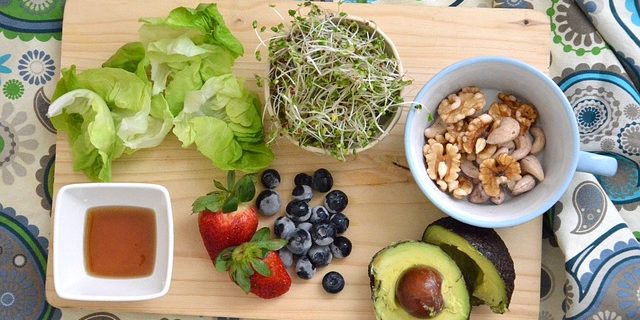Chronic inflammation is associated with many health conditions such as rheumatoid arthritis and osteoarthritis as well as heart disease, diabetes, cancer and many pain disorders. Research suggests that chronic inflammation can lead to the above health problems, as well as Alzheimer’s and other types of dementia.
Inflammation is an important part of the healing process. With an infection or an injury, the body responds with acute inflammation as a response to trauma. This is a healthy and necessary response that fades as the trauma or infection heals. Chronic inflammation is continuous, without an injury to explain it, and can cause damage to healthy tissue over time.
Some foods are known to lead to chronic inflammation in the body. These include fried foods, sweetened drinks and sodas, processed foods, and foods high in sugar and fat. It is best to minimize these foods in the diet while increasing foods that are known to protect against inflammation. Foods that may be called “superfoods” as inflammation fighters include some types of nuts, fish, fruits and vegetables, and familiar spices.
Walnuts, almonds and nut butters are all anti-inflammatory foods. They once were thought to be bad for the heart, but now it is known that they contain healthy fats that are protective against cardiovascular disease. Walnuts contain the greatest amount of the omega-3 fatty acid called DHA that maintains brain health. DHA aids in the prevention of aging related cognitive decline.
Salmon, sardines and anchovies are cold water fatty fish that contain high levels of omega-3 fatty acids. These fatty acids are an excellent anti-inflammatory and may be as effective as non-steroidal anti-inflammatory medications in relieving inflammatory pain.
Pure olive oil and avocados are fantastic foods for fighting inflammation. Olive oil loses therapeutic properties when cooked above medium heat. Avocados eaten fresh and avocado oil are both great choices for anti-inflammatory action. For fruits and veggies, all berries are anti-inflammatory, so add them to your morning smoothie! Blueberries are especially therapeutic due to the phytonutrient anthocyanin that is an antioxidant as well. Dark leafy greens such as kale, spinach, collards and Swiss chard and cruciferous vegetables like broccoli and cauliflower are important protectors against inflammation.
In the world of spices, Turmeric root (best known as the yellow coloring in curry powders) and Ginger root (fresh or dried) pack a powerful anti-inflammatory punch, especially when used as a combo. It can be a little challenging to get enough turmeric every day for chronic inflammation and pain, so it’s often easier to take a concentrated supplement. Ginger makes an excellent tea and has the added benefit of improving digestion.
If you suffer from chronic inflammatory pain, or are concerned about inflammation leading to health problems down the road, making some simple changes can do a lot of good. Removing or reducing the foods that we know to increase inflammation, and adding some of these superfoods to your regular diet is a great start. Taking Turmeric or Ginger as a daily supplement can greatly reduce discomfort. And of course, getting plenty of water, fresh air, and exercise is always a good idea!
To your health!
References:
http://www.naturalnews.com/053777_superfoods_turmeric_inflammation.html
http://www.chopra.com/articles/6-foods-that-fight-inflammation








